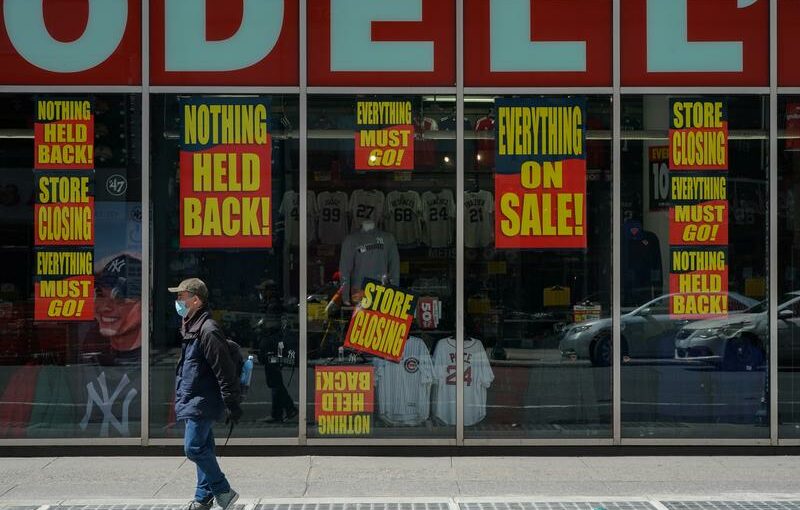WASHINGTON (Reuters) – U.S. retail sales rebounded sharply in January after households received additional pandemic relief money from the government, suggesting a pick-up in economic activity after being restrained by a fresh wave of COVID-19 infections late last year.
Retail sales surged by a seasonally adjusted 5.3% last month, the Commerce Department said on Wednesday. Data for December was revised down to show sales decreasing 1.0% instead of 0.7% as previously reported. Economists polled by Reuters had forecast retail sales increasing 1.1% in January.
Excluding automobiles, gasoline, building materials and food services, retail sales jumped 6.0% last month after dropping by revised 2.4% in December. These so-called core retail sales correspond most closely with the consumer spending component of gross domestic product. They were previously estimated to have declined 1.9% in December.
The government approved another coronavirus rescue package worth nearly $900 billion at the end of December, which included $600 checks to mostly low-income and some middle-income Americans. The bulk of the money was disbursed in early January, which supported discretionary spending last month.
The package also extended a government-funded weekly unemployment subsidy as well as benefits for millions of people who do not qualify for state unemployment programs as well as those who have exhausted their six months of eligibility.
The model used by the government to strip out seasonal fluctuations from the data typically anticipates a bigger post-holiday season drop in retail sales in January. Economists believe that decline was smaller than the model expected, leading to a big rise in the seasonally adjusted retail sales.
Further gains in sales are expected in the months ahead. The U.S. Congress is considering President Joe Biden’s $1.9 trillion recovery plan, which will include an additional $1,400 checks to households. The massive fiscal stimulus is expected to power consumer spending this quarter and drive faster economic growth.
COVID-19 infection rates and hospitalizations in the United States are also declining, and the distribution of vaccines has improved. That should allow more restaurants and other consumer-facing businesses to reopen in the spring.
Employed Americans have boosted savings, which stood at $2.38 trillion in December. That could unleash pent-up demand for services like air travel and hotel accommodation, which have been hardest hit by the pandemic.
The economy is forecast growing by as much as 4.8% this year after contracting 3.5% in 2020, the biggest drop in gross domestic product since 1946.
Source: Read Full Article
